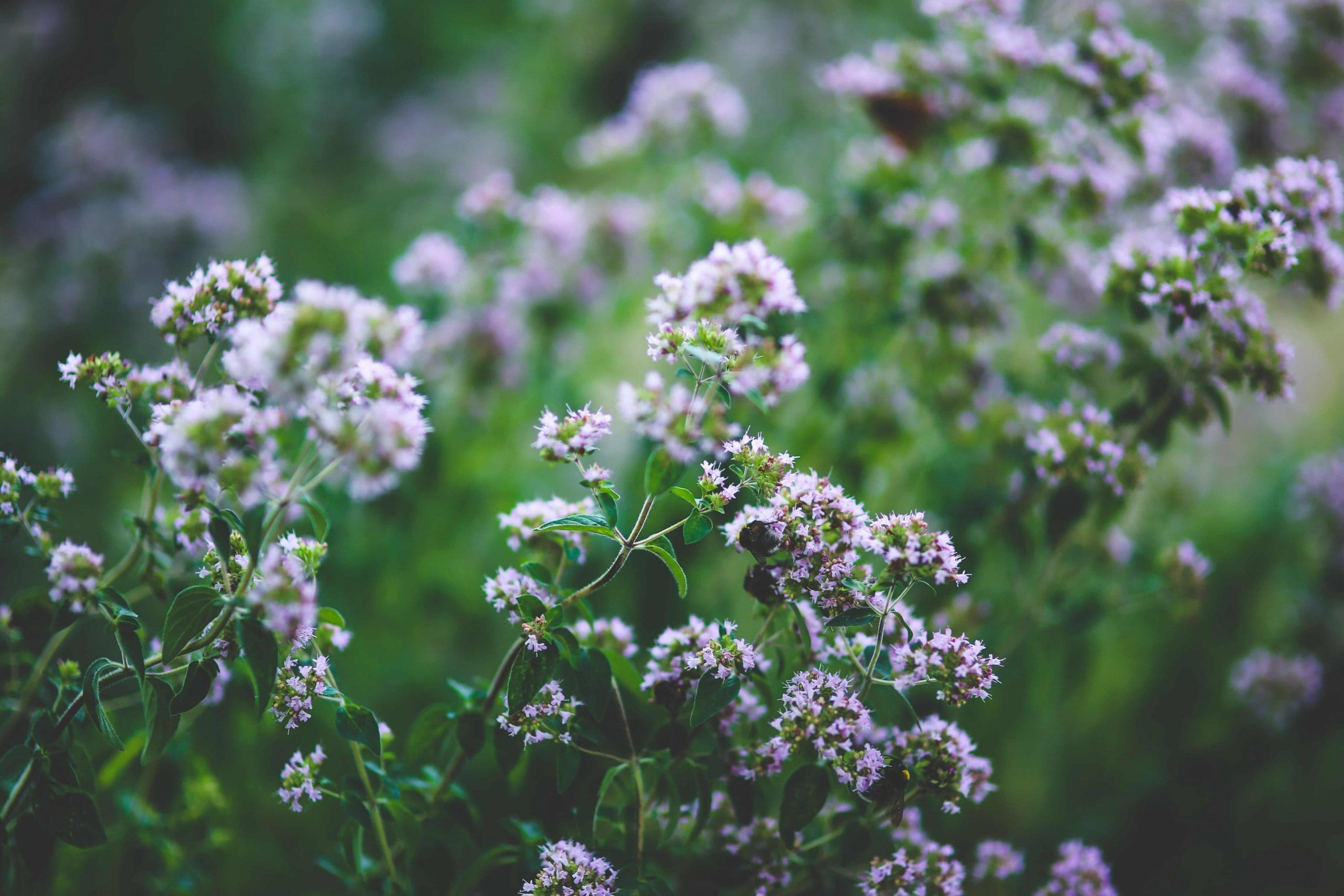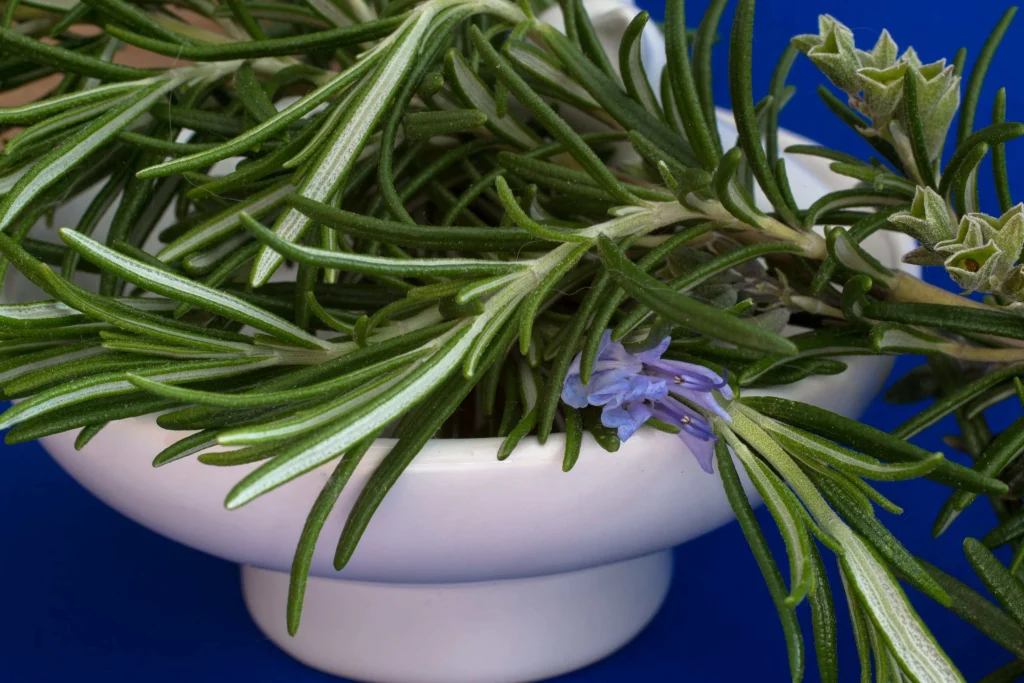10 herbs & spices to boost your immunity

Summer is quickly approaching! Any change in season can bring about an increase in illnesses such as the common cold. The shift in temperature allows certain bugs to thrive, and in spring, allergies also run rampant and can increase your vulnerability to infection. We all want to avoid getting sick, so it’s important to do everything you can to keep your immunity in tip top shape!
Having a robust immune system can prevent you from catching any bugs that might be floating around, and there are a huge number of everyday herbs and spices that can help to improve your immunity. Try adding a few of these to your regular meals!
Important!
While the recommended herbs and spices are raw, natural and readily available, they can still interfere with some medical conditions or medications. Make sure you check with a medical professional before starting any new regime.
Ginger
As well as being warm and comforting, ginger has fantastic anti-inflammatory properties and may help you to ward off that approaching sniffle.
Ginger may also help to clear up congestion by inhibiting the production of mucous.
Fresh ginger can be purchased throughout the year at your local supermarket. Try chopping it finely (or mashing it) and adding it to hot water along with a slice of lemon and some raw honey.
Turmeric
Turmeric contains curcumin which has amazing anti-inflammatory properties and may have the potential to prevent disease. Turmeric has been a staple healing food for centuries in ancient Indian Ayurvedic medicine, being used to treat and prevent a wide range of illnesses. It’s popularity in Western culture has increased hugely of late, with “Golden Latte’s” popping up everywhere.
You can find turmeric in powdered form in your supermarket or local health food store, in its natural root form in some supermarkets and farmer’s markets, and in tablet form in chemists and health food stores.
*High doses of turmeric should not be taken by anyone on blood thinning medication – make sure you speak to your GP first.
Olive leaf
Olive leaf is a powerful anti-bacterial, and has been shown to fight bacteria, fungi and parasites that cause infection and disease. It stimulates the immune system, having antiseptic, antiviral, anti-inflammatory, anti-fungal and anti-microbial effects.
Studies have shown that olive leaf extract has had positive effects against influenza and may reduce the strength and duration of viruses that cause colds and respiratory infections. Along with the positive effects to the respiratory system, olive leaf may also help to heal the gastrointestinal tract, improving gut health.
The easiest way to track down olive leaf is at your local chemist, where you’ll find olive leaf extract in liquid form. While not a potent as the liquid extract, if you know someone with an olive tree, you can pick the leaves, dry them and brew them with some mint leaves to make a tasty tea.
Echinacea
You’ve probably been told to take echinacea at some point in your life. Studies have found that Echinacea may shorten the duration and severity of cold symptoms and is often the go-to for many people when they start to feel a cold coming. It works best as a preventative, strengthening your immune activity and reducing your likelihood of contracting that pesky cold that’s going around.
Echinacea contains four compounds that may help to boost the immune system. These are called alkamides, glycoproteins, polysaccharides and caffeic acid derivatives.
Some studies have shown that echinacea may reduce your chances of contracting a cold by as much as 58%!
However, other studies have shown that it only reduces your chances by 10-20%. It was also found that echinacea reduced the length of time of a cold by 1.4 days.
One of the key findings of echinacea studies is that in order to see significant benefit, echinacea must be taken at the onset of symptoms. So, as soon as you feel that first tickle in your throat, or at the initial sign of a sniffle, track down some echinacea quick-smart!
Echinacea is a popular supplement, so you won’t have any trouble finding it in the health & medication aisle at your local supermarket. You could also grow echinacea yourself – it’s lovely flowers can brighten up your garden before being steeped in hot water to provide you with an immune-boosting tincture.
Oregano

You might already have oregano growing in your herb garden – it’s a popular culinary herb and is used in many Italian-inspired dishes. But, it is also a powerful anti-microbial.
Studies have shown that oregano essential oil helped to block the growth of two common strains of bacteria that cause infection. Further studies showed that the herb was effective against 23 species of bacteria!
In addition to fighting off bacteria, some studies have found that two components of oregano (carvacrol and thymol) may also protect you against some viruses. Not only did oregano inactivate certain viruses, it did so within 1 hour of taking it!
Like echinacea, oregano can be grown in your garden or in a pot. It grows easily and doesn’t require a huge amount of care. Keep it close to your kitchen and add it to your evening meals.
Astragalus
Of all the herbs and spices in this list, astragalus may be the one you haven’t heard much about. It is used regularly in Chinese medicine and is revered for its ability to enhance the function of your immune system. It does this by increasing your white blood cell count – white blood cells are your immune systems’ soldiers and are responsible for attacking any invading viruses, bacteria and fungi.
Like a lot of natural medicine, research and scientific evidence is limited and inconclusive, however animal studies have shown astragalus to have great positive effect on fighting bacteria and viruses.
It is also thought to improve heart function.
While not readily available in supermarkets, astragalus will be in stock at your local chemist.
Garlic
Raw garlic might not make you the most popular choice amongst your peers, but it could keep you in great health. Over the centuries, garlic has been used to ward off the plague, keep vampires at bay, prevent gangrene in both World Wars, and was even used as an aphrodisiac in India!
This powerful little bulb may be a bit on the nose, but has beautiful origins – it is a member of the lily family and if left to grow, it has gorgeous purple flowers.
One tiny clove is jam-packed full of goodies, with high levels of calcium, potassium and sulfuric compounds – all of which may help to wipe out bacteria and infection.
Unfortunately, to take advantage of these beneficial compounds, garlic must be consumed raw – any heat will destroy its healing properties.
Buy garlic as fresh as you possibly can to take advantage of the active properties while they’re at their best. Alternatively, grow garlic yourself and eat it straight out of the ground!
Rosemary
This is another herb you might already have growing in your backyard. Surprisingly, rosemary is a member of the mint family and was historically carried by mourners at funerals. It is known as the herb of remembrance and herbalists do in fact recommend rosemary for memory recall ability.
As well as improving memory, rosemary has a range of health benefits. It is a rich source of antioxidant and anti-inflammatory compounds, which may help to boost the immune system and reduce infection. Laboratory studies have shown rosemary to be rich in antioxidants, which play an important role in neutralizing harmful particles called free radicals.
Do you have circulation issues? Try rubbing some rosemary essential oil onto your hands and feet – you might be surprised at how well it works to improve blood flow and warm them up!

Grow rosemary yourself, it is super easy and requires very minimal attention. You can also buy it from your local supermarket or farmers market.
Thyme
Thyme is a fantastic herb believed by many to prevent viral and fungal infections, and for relieving symptoms of respiratory conditions such as bronchitis, asthma, colds, flu, allergies and blocked sinuses. Like oregano, thyme’s most active ingredient is thymol, which helps to eliminate phlegm and mucus from the respiratory tract, eases inflammation to help breathing, and prevents microbial development.
Thyme also contains high levels of Vitamin C which stimulate the production of white blood cells, strengthening the immune system.
Grow thyme yourself and brew it into a tea – it’s one of the best ways to achieve relief from respiratory ailments.
Cinnamon
Cinnamon is a pantry staple, so you probably already have some tucked away with your baking goods. The active, infection-fighting component of cinnamon is called cinnamaldehyde, which has been shown to relieve and treat respiratory tract infections – specifically those caused by fungi, but it may also inhibit the growth of bacteria.
Cinnamon also has antimicrobial properties, which may help prevent tooth decay and reduce bad breath!
If you already use cinnamon in your baking, try adding it to savoury dishes as well – it works fantastically in curries and middle eastern dishes.








